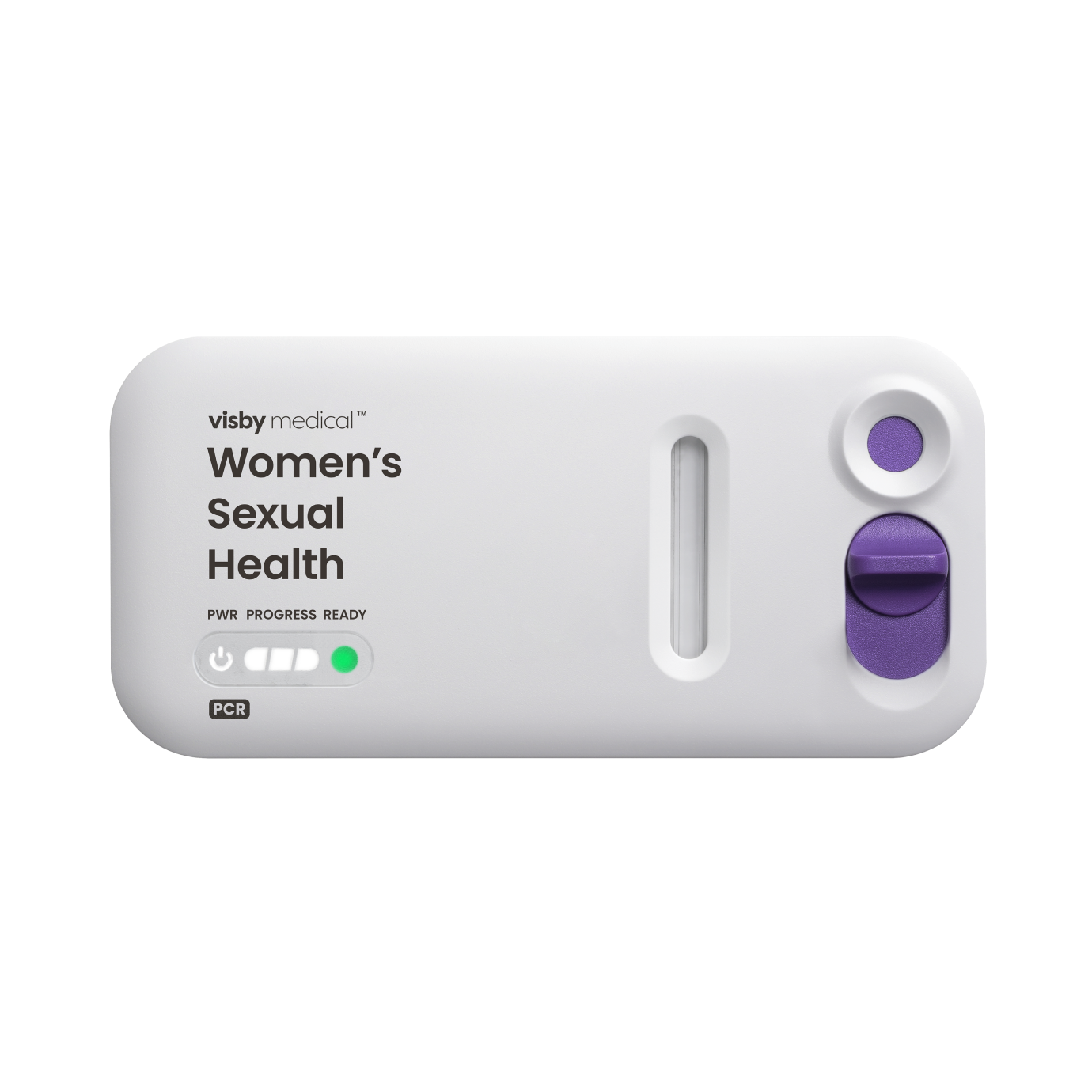
Medically Reviewed By: Jillian Foglesong, MD, FAAFP
A full panel blood test is an important medical diagnostic tool that provides a comprehensive overview of your health by analyzing multiple components in your blood. It is commonly used by healthcare providers to assess overall well-being, monitor chronic conditions, and detect potential health issues early. If you’re wondering what exactly a full panel blood test measures and why it's so important, this article will guide you through everything you need to know.
What is a Full Panel Blood Test?
A full panel blood test is a general term that can refer to a group of different lab tests used together to evaluate your overall health. One common type is the comprehensive metabolic panel (CMP), which includes tests for sodium, potassium, chloride, CO₂, BUN, creatinine, calcium, albumin, total protein, AST, ALT, and alkaline phosphatase. In some cases, a “full panel” may also incorporate additional tests like a complete blood count (CBC), lipid panel, or thyroid panel to provide a broader view of your health status.1
The results from a full panel blood test help your doctor diagnose conditions such as diabetes, liver disease, kidney disease, and electrolyte imbalances, or even give early signs of conditions that may not yet have noticeable symptoms.
What Does a Full Panel Blood Test Measure?
1. Blood Glucose
One of the measures in a full panel blood test is blood glucose. It provides insights into your body’s ability to regulate sugar levels. Elevated glucose levels may indicate diabetes or a prediabetic condition.2
2. Electrolytes
Electrolytes are essential minerals in your blood that help maintain fluid balance and proper function of muscles and nerves.3 These include sodium, potassium, calcium, and chloride. Imbalances in electrolytes may signal kidney problems, dehydration, or heart issues.
3. Kidney Function (BUN and Creatinine)
A full panel blood test measures substances like blood urea nitrogen (BUN) and creatinine, both of which provide critical information about your kidney function. High levels of BUN and creatinine may suggest kidney disease or dehydration.4 Elevated serum creatinine is often used to estimate glomerular filtration rate (GFR), which helps evaluate the severity of kidney impairment.5
4. Liver Function (ALP, ALT, AST, Bilirubin)
Your liver’s health is reflected in various enzymes measured in a full panel blood test, including alkaline phosphatase (ALP), alanine aminotransferase (ALT), and aspartate aminotransferase (AST). Elevated levels of these enzymes can indicate liver disease or liver damage. Bilirubin, another liver component, can also be measured to check for jaundice or bile duct problems.
5. Proteins (Total Protein, Albumin, Globulin)
Total protein is a general measure of the proteins in your blood, including albumin and globulin. Abnormal levels can point to malnutrition, liver disease, or kidney issues. Albumin helps maintain the right balance of fluids in your bloodstream, while globulin is essential for immune function.
6. Calcium
Blood calcium levels are important for bone health, muscle function, and nerve signaling. Low or high calcium levels can indicate conditions related to the bones, kidneys, or parathyroid glands. A calcium imbalance can also be a sign of hyperparathyroidism or kidney disease.
7. Carbon Dioxide (CO₂) Levels
Carbon dioxide (CO₂) levels are part of the test that evaluates your body’s acid-base balance. The levels of CO₂ can provide insight into lung function or kidney function. Low or high CO₂ levels may indicate conditions such as respiratory failure or kidney disease.
Why Is a Full Panel Blood Test Important?
A full panel blood test is a part of a thorough check of your overall health, detecting early warning signs of various medical conditions before they become more severe. This test helps doctors monitor chronic diseases like diabetes, kidney disease, and liver disease. It also offers insights into your nutritional status, heart health, and immune function.
The key benefit of a full panel blood test is that it helps identify potential problems early, allowing for quicker intervention and better management of health conditions.
How is a Full Panel Blood Test Done?
Step 1: Preparation
In most cases, no special preparation is needed for a full panel blood test. However, depending on the specific tests included in the panel, your healthcare provider might ask you to fast for 8–12 hours before the test. It's important to follow any instructions provided by your doctor regarding preparation to ensure the accuracy of the test results.
Step 2: Blood Sample Collection
The blood sample for a full panel blood test is usually drawn from a vein in your arm. The healthcare provider will clean the area with an antiseptic wipe to reduce the risk of infection. A needle is then inserted into the vein to collect the blood. The procedure is quick, although you may experience a brief pinch or mild discomfort during the process. Typically, a few tubes of blood are collected to test for different components such as glucose, liver enzymes, and kidney function.
Step 3: Sending the Sample to the Lab
Once the blood sample is collected, it is sent to a laboratory for analysis. The sample is processed to separate the different components of the blood, such as plasma, red blood cells, and white blood cells. The laboratory staff will use various machines and techniques to measure different blood components, including cholesterol levels, liver and kidney function, and electrolyte balance.
Step 4: Analyzing the Sample
In the laboratory, an automated analyzer processes the blood sample, measuring several key components depending on which tests are ordered. A "full panel" often includes a combination of tests such as a Complete Blood Count (CBC), comprehensive metabolic panel (CMP), and sometimes a lipid profile, depending on the provider. These tests help identify conditions such as anemia, infections, liver or kidney dysfunction, high cholesterol, and diabetes.1
Step 5: Reviewing Results
After the laboratory completes the analysis, the results are made available. Your healthcare provider will review the results and compare them to normal reference ranges to determine whether any values fall outside the expected ranges. If any abnormalities are found, your healthcare provider will discuss potential causes and suggest further tests if necessary.
Step 6: Receiving Your Results
Once your full panel blood test results are available, your healthcare provider will discuss them with you. If any results are abnormal, they may recommend additional testing or treatments to address any underlying health concerns. The results of the full panel blood test can help in early detection of health conditions, allowing for more effective treatment and management.
Step 7: Follow-Up (if necessary)
If abnormalities are detected in your full panel blood test, follow-up testing may be required. Your healthcare provider may order additional tests or recommend lifestyle changes, medications, or other interventions based on the results. Continuous monitoring and follow-up can help manage or prevent potential health problems.
When Should You Get a Full Panel Blood Test?
You may need a full panel blood test as part of a routine health checkup or if you're experiencing unexplained symptoms like fatigue, dizziness, or weight loss. While a comprehensive metabolic panel (CMP) can help assess kidney and liver function, other tests—such as a lipid panel or blood glucose test—may be added to monitor conditions like high cholesterol or diabetes.2 Together, these tests help provide a broader view of your overall health and guide appropriate treatment.
Additionally, certain medications or lifestyle factors may warrant regular blood tests to monitor potential side effects or the effectiveness of treatment.
Take Control of Your Health with Everlywell’s At-Home Blood Test
A blood test is a crucial tool in understanding your overall health. It provides essential insights into various bodily functions and can help detect conditions like anemia, infections, and blood disorders. Everlywell provides convenience of at home tests and offers comprehensive full body test with Everlywell 360. One in-person blood and urine test measures 83 biomarkers across six key health categories—and your results don’t stop at numbers. With Everlywell 360, you also get a provider-reviewed Care Plan and a unique WellScore so you can track your health year over year.
References
- Blood tests. Cleveland Clinic. Reviewed March 14, 2024. Accessed April 29, 2025. https://my.clevelandclinic.org/health/diagnostics/24508-blood-tests.
- Prediabetes. Mayo Clinic. Updated March 30, 2023. Accessed April 29, 2025. https://www.mayoclinic.org/diseases-conditions/prediabetes/symptoms-causes/syc-20355278.
- Electrolytes. Cleveland Clinic. Reviewed October 25, 2022. Accessed April 29, 2025. https://my.clevelandclinic.org/health/diagnostics/21790-electrolytes.
- Blood urea nitrogen (BUN) test. Cleveland Clinic. Reviewed January 10, 2023. Accessed April 29, 2025. https://my.clevelandclinic.org/health/diagnostics/17684-blood-urea-nitrogen-bun-test.
- Schardijn GH, Statius van Eps LW. Serum creatinine and creatinine clearance: general clinical implications and analytical considerations. Clin Nephrol. 1987;28(1):47-51. https://www.ncbi.nlm.nih.gov/pmc/articles/PMC3736857/.
Spotlight on
February is Cancer Prevention Month

86% of cancers aren't caught by recommended screenings. See what they're missing with a single blood draw.
Save $100 now
Explore Everlywell









